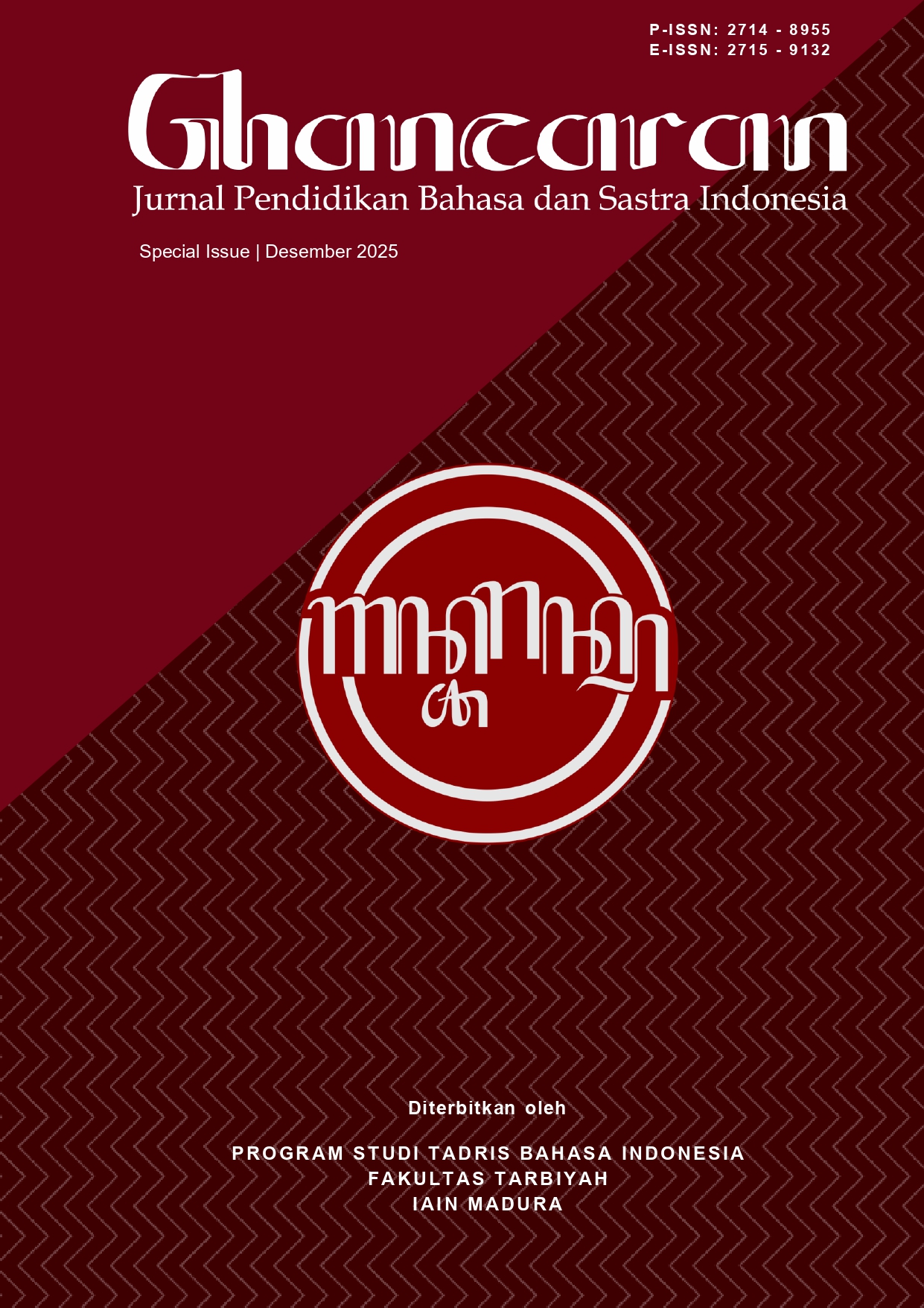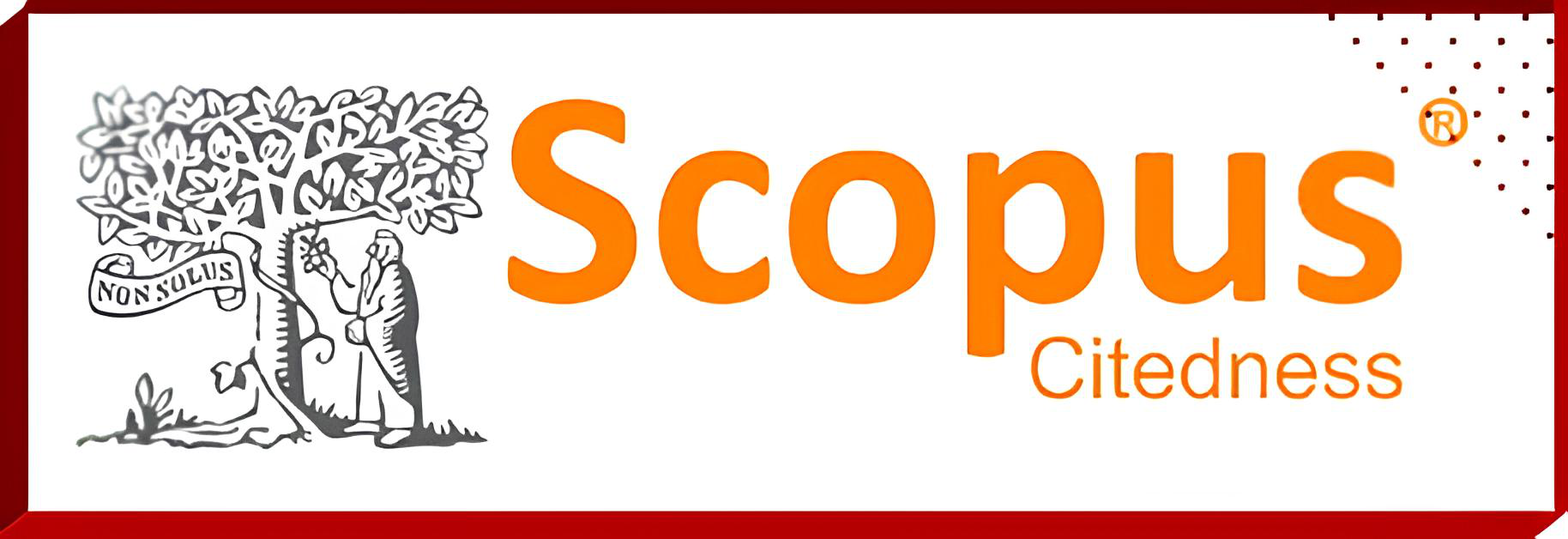Entry-Level Assessment to Assess Readiness and Predict Study Success of Prospective College Students
 Abstract views: 205
,
Abstract views: 205
,
 PDF downloads: 110
PDF downloads: 110
Abstract
This study aimed to evaluate the effectiveness of the Entry-Level Assessment (ELA) in measuring academic readiness and predicting the success of new students during their first year of study. The research utilized a mixed-methods approach, integrating qualitative analysis to describe the characteristics of test items with quantitative analysis to explore the relationship between ELA scores and academic achievement, as reflected in first and second-semester grade point averages (GPA). Data were gathered from ELA documents, ELA scores, and the GPAs of 132 students. The findings demonstrated that the ELA encompasses tests assessing academic potential, literacy, numeracy, and English, with a particular focus on higher-order thinking skills. Correlation analysis revealed a positive relationship between ELA scores and GPA in the first semester; however, this correlation weakened in subsequent semesters. These findings affirm that the ELA possesses strong predictive validity for short-term academic success but has limitations in forecasting long-term performance. This study makes a significant contribution to the advancement of college entrance tests by recommending enhancements in item design, improving the relevance of cognitive indicators, and broadening the assessment framework to include social and emotional skills. The implications of these findings are vital for higher education institutions in developing their selection policies and supporting students' academic journeys.
Downloads
References
Al Ali, R., & Yousef, W. (2024). Enhancing student motivation and achievement in science classrooms through STEM education. STEM Education, 4(3), 183–198.
Ali, R., Ali, S.K., & Afzal, A. (2019). Predictive validity of a Uniform Entrance Test for health professionals. Pakistan Journal of Medical Sciences, 35(2), 330.
Aljehani, S. B. (2024). Enhancing Student Learning Outcomes: The Interplay of Technology Integration, Pedagogical Approaches, Learner Engagement, and Leadership Support. Educational Administration: Theory and Practice, 30(4), Article 4.
Almarabheh, A., Shehata, M. H., Ismaeel, A., Atwa, H., & Jaradat, A. (2022). Predictive validity of admission criteria in predicting academic performance of medical students: A retrospective cohort study. Frontiers in Medicine, 9, 971926.
Althewini, A. (2019). The Predictive Validity of Standardized Tests and English Proficiency for Saudi Medical Students’ Performance in Biology. International Journal of Education and Literacy Studies, 7(4), 158.
Anastasi, A., & Urbina, S. (1997). Psychological testing (7. ed). Prentice Hall.
Anderson, L. W., De Ibarrola, M., & Phillips, D. C. (2018). Introduction to the special issue: Historical and contemporary perspectives on educational evaluation. Education Policy Analysis Archives, 26, 45.
Burrus, J., Way, J., Bobek, B., Stoeffler, K., & O’Connor, R. (2020). The ACT Holistic Framework® of Education and Workplace Success. In M. E. Oliveri & C. Wendler (Eds.), Higher Education Admissions Practices (1st ed., pp. 307–332). Cambridge University Press.
Cassady, J., Finch, W. H., & Heath, J. A. (2022). Early Assessment of Cognitive Skills, Self-Regulated Learning Skills, and Attitudes Toward Education Predict University Success at Graduation. Journal of Postsecondary Student Success, 1(4).
Cliff, A., Ramaboa, K., & Pearce, C. (2007). The assessment of entry-level students academic literacy: Does it matter? Ensovoort, 11, 33–48.
Cloke, H. (2024, June 7). Merrill’s First Principles of Instruction: Unleashing The Power of Problem-Solving. Growth Engineering.
Creswell, J. W. (2014). Research Design: Qualitative, Quantitative, and Mixed Methods Approaches. SAGE Publication, Inc.
D’Alessio, F. A., Avolio, B. E., & Charles, V. (2019). Studying the impact of critical thinking on the academic performance of executive MBA students. Thinking Skills and Creativity, 31, 275–283.
Dawn P. Flanagan & Erin M. McDonough. (2022). Contemporary Intellectual Assessment: Fourth Edition: Theories, Tests, and Issues. Guilford Press.
De Vries, J. A., Dimosthenous, A., Schildkamp, K., & Visscher, A. J. (2022). The impact on student achievement of an assessment for learning teacher professional development program. Studies in Educational Evaluation, 74, 101184.
Durlak, J. A., Domitrovich, C. E., & Mahoney, J. L. (2024). Handbook of Social and Emotional Learning: Second Edition. The Guilford Press.
Erdiana, N., & Panjaitan, S. (2023). How is HOTS integrated into the Indonesian high school English textbook? Studies in English Language and Education, 10(1), Article 1.
Erlinawati, E., & Muslimah, M. (2021). Test Validity and Reliability in Learning Evaluation. Bulletin of Community Engagement, 1(1), Article 1.
French, S., Dickerson, A., & Mulder, R. A. (2024). A review of the benefits and drawbacks of high-stakes final examinations in higher education. Higher Education, 88(3), 893–918.
Gopalan, Y., & Hashim, H. (2021). Enhancing Higher Order Thinking Skills (Hots) Through Literature Components in ESL Classrooms. International Journal of Academic Research in Progressive Education and Development, 10.
Johansson, E. (2020). The Assessment of Higher-order Thinking Skills in Online EFL Courses: A Quantitative Content Analysis. Nordic Journal of English Studies, 19, 224–256.
Kania, N., Kusumah, Y. S., Dahlan, J. A., Nurlaelah, E., & Arifin, Z. (2024). Research Trends in Higher-Order Thinking Skills in the journal Mathematics Education in Indonesia: From Design to Data Analysis. International Journal of Mathematics and Mathematics Education, 2(3), Article 3.
Krathwohl, D. R. (2002). A Revision of Bloom’s Taxonomy: An Overview. Theory Into Practice, 41(4), 212–218.
Kuh, G. D. (Ed.). (2010). Student success in college: Creating conditions that matter (Rev. and updated ed.). Wiley.
Ling, J., & Sing Ling, O. (2024). Integrating Higher-Order Thinking Skills (HOTS) in Teaching and Learning: Malaysia and Singapore in Retrospection. 4, 10–19.
Liu, O. L., Frankel, L., & Roohr, K. (2014). Assessing Critical Thinking in Higher Education: Current State and Directions for Next-Generation Assessment. ETS Research Report Series, 2014.
Marek, M., Lizárraga-Dueñas, L., Woulfin, S., Wetzel, M. M., & Muñoz, E. (2024). A Framework for Curriculum Literacy in Initial Teacher Preparation: Policy, Practices, and Possibilities. Journal of Teacher Education, 00224871241263803.
Meirbekov, A., Maslova, I., & Gallyamova, Z. (2022). Digital education tools for critical thinking development. Thinking Skills and Creativity, 44, 101023.
Messick, S. (1995). Validity of psychological assessment: Validation of inferences from persons’ responses and performances as scientific inquiry into score meaning. American Psychologist, 50(9), 741–749.
Miles, M. B., Huberman, A. M., & Saldana, J. (2014). Qualitative Data Analysis. SAGE.
Miles, M. B., Huberman, A. M., & Saldana, J. (2018). Qualitative Data Analysis: A Methods Sourcebook. SAGE Publications.
Nainggolan, B. R., Purnawarman, P., & Sukyadi, D. (2022). Comprehension Processes and Critical Thinking Skills in Two University Entrance Exams in Indonesia: A Content Analysis of the SBMPTN and the SIMAK UI 2008-2019. Polyglot: Jurnal Ilmiah, 18(1), 1. https://doi.org/10.19166/pji.v18i1.4908.
OECD. (2023). Education at a Glance 2023: OECD Indicators. OECD.
Pandya, P., Talwarr, A. S., Gupta, V., Kataria, T., Gupta, V., & Roth, D. (2024). Cognitive Reasoning Benchmark for Vision Language Models (arXiv:2407.10380). arXiv.
Pellegrino, J. W., Chudowsky, N., Glaser, R., & National Research Council (U.S.) (Eds.). (2001). Knowing what students know: The science and design of educational assessment. National Academy Press.
Peng, P., & Kievit, R. A. (2020). The Development of Academic Achievement and Cognitive Abilities: A Bidirectional Perspective. Child Development Perspectives, 14(1), 15–20.
Petra, T. Z. H. T., & Aziz, M. J. A. (2020). Investigating reliability and validity of student performance assessment in Higher Education using Rasch Model. Journal of Physics: Conference Series, 1529(4), 042088.
Polya, G., & Conway, J. H. (2015). How to Solve It: A New Aspect of Mathematical Method. Princeton University Press.
Putri, R. N., & Sulistyaningrum, S. D. (2021). Incorporating higher-order thinking skills in english lesson plans for senior high school. Celtic : A Journal of Culture, English Language Teaching, Literature and Linguistics, 8(2), Article 2.
Putri, T. A., Yulistio, D., & Trianto, A. (2023). An Analysis of HOTS Level Questions on the Indonesian Objective Tests. IJLECR (International Journal of Language Education and Cultural Review), 9(1), Article 1.
Regional Center of Education & Training Professions, Institutions for Higher Executive Training, Tangier, Morocco, & Hrich, N. (2024). Artificial Intelligence Item Analysis Tool for Educational Assessment: Case of Large-Scale Competitive Exams. International Journal of Information and Education Technology, 14(6), 822–827.
Riyanti, B. P. D., Suryani, A. O., Sandroto, C. W., & Soeharso, S. Y. (2022). The construct and predictive validity testing of Indonesian entrepreneurial competence inventory-situational judgment test model. Journal of Innovation and Entrepreneurship, 11(1), 3.
Sabanal, D., Gako, M., Dela Torre, H., Sabanal, J., So, R. B., Bacal, J. B., Corgio, L. D., Laroga, J. F., Camallere, C., Pagador, M. J., Barino, R. J., Mameng, K., Go, M., & Goles, N. (2024). Predictive model for college students’ performance in higher mathematics. Social Sciences & Humanities Open, 10, 101134.
Santosa, I., Iskandar, I., & Munawaroh, L. A. (2024). Assessing Students’ Learning Readiness Toward Student-Centered Learning. Journal of English Education and Teaching, 8(1), Article 1.
Sari, C. M., Ridwan, A., & Sastrawijaya, Y. (2023). Developing students’ numeracy skills through numeracy learning environment. Proceeding Djuanda International Conference, 261–270.
Setiawan, J., Ajat Sudrajat, A., Aman, A., & Kumalasari, D. (2021). Development of higher order thinking skill assessment instruments in learning Indonesian history. International Journal of Evaluation and Research in Education (IJERE), 10(2), 545.
Sholikah, E., Suprihadi, S., & Nuraeningsih, N. (2021). The Relationship Between Higher-Order Thinking Skills and Academic Achievement. Prominent, 4(1), 45.
Sultan, Rofiuddin, A., Nurhadi, & Priyatni, E. T. (2017). The Effect of the Critical Literacy Approach on Pre-Service Language Teachers’ Critical Reading Skills. Eurasian Journal of Educational Research.
Tanujaya, B., Mumu, J., & Margono, G. (2017). The Relationship between Higher Order Thinking Skills and Academic Performance of Student in Mathematics Instruction. International Education Studies, 10(11), 78–85/.
Utami, N., Yahrif, M., Rosmayanti, V., & Siradjuddin, S. (2023). The Effectiveness of Contextual Teaching and Learning in Improving Students’ Reading Comprehension. Journal of Languages and Language Teaching, 11(1), 83–93.
Wilson, M., & Scalise, K. (2006). Assessment to improve learning in higher education: The BEAR Assessment System. Higher Education, 52(4), 635–663.
Wisniewski, B., Zierer, K., & Hattie, J. (2020). The Power of Feedback Revisited: A Meta-Analysis of Educational Feedback Research. Frontiers in Psychology, 10, 3087.
Yadav, R. S. (2022). A Study of Relationship to Absentees and Score Using Machine Learning Method: A Case Study of Linear Regression Analysis. IARS’ International Research Journal, 12(1), 33–39.
Yarun, A., Moch. Zainal Arifin Hasan, Syahri, S., & Markus, M. (2023). Higher Order Thinking Skill (HOTS) Students in Indonesia and Saudi Arabia (Comparative Study of Assessment Application in Schools). Journal of Contemporary Islamic Education, 3(2), 96–109.
Zakeri‐Nasrabadi, M., & Parsa, S. (2022). Learning to predict test effectiveness. International Journal of Intelligent Systems, 37(8), 4363–4392.
Zananda, T. F., & Setiawan, M. L. (2023). Language testing: Characteristic of good tests, testing language skills and components. Enrich: Jurnal Pendidikan, Bahasa, Sastra Dan Linguistik, 4(2), 15–24.
Zhou, Y., Gan, L., Chen, J., Wijaya, T. T., & Li, Y. (2023). Development and validation of a higher-order thinking skills assessment scale for pre-service teachers. Thinking Skills and Creativity, 48, 101272.
Zimmermann, K., Yang, Q., Ansari, A., & Purtell, K. (2024). An examination of the use and outcomes of readiness assessments, retention policies, and title 1 funding for kindergarten children in the United States. Early Childhood Research Quarterly, 67, 78–88.
Copyright (c) 2025 GHANCARAN: Jurnal Pendidikan Bahasa dan Sastra Indonesia

This work is licensed under a Creative Commons Attribution-ShareAlike 4.0 International License.
Ghancaran: Jurnal Pendidikan Bahasa dan Sastra Indonesia uses an Open Access Policy under the Creative Commons Attribution-ShareAlike 4.0 International License. Authors publishing in this journal agree to the following terms:
- Ghancaran Journal holds the copyright and grants the journal rights for first publication with the work simultaneously licensed under a

The work is distributed under Creative Commons Attribution-ShareAlike 4.0 International License which allows others to share, copy, and redistribute the material in any media or format and adapt, remix, change, and develop the material even for commercial purposes, as long as it is stated credit and license derivative works under similar terms. - Authors may make additional contractual arrangements for non-exclusive distribution of the journal's published work version.
- Authors are permitted to post their work online (e.g., in institutional repositories or on their websites) before and during submission, as doing so may lead to productive exchange.



















